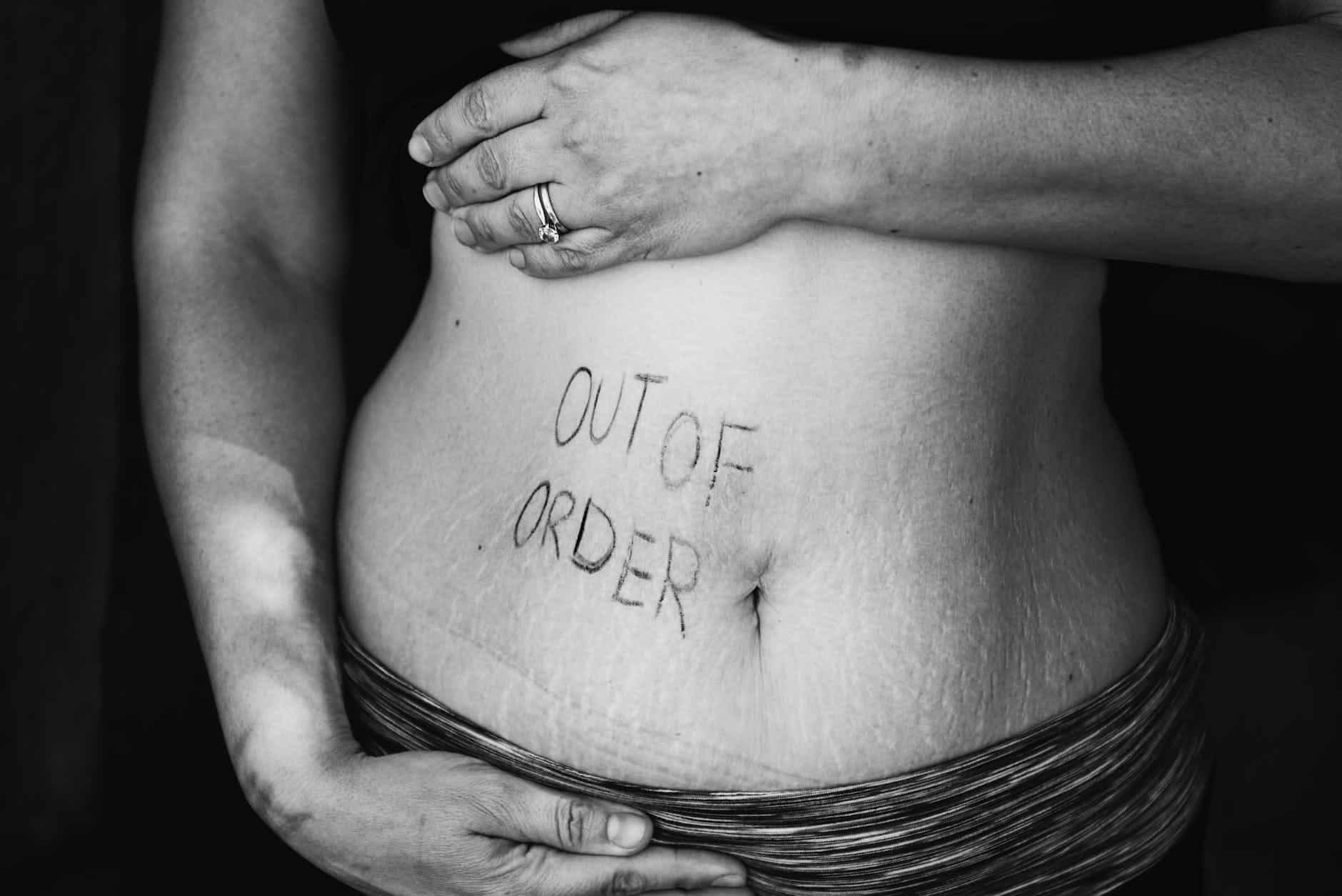What is a PCOS Belly?
PCOS is a prevalent hormonal condition that mostly affects women of reproductive age. It is distinguished by the appearance of numerous cysts on the ovaries, irregular menstruation periods, and a hormonal imbalance. The development of a “PCOS belly,” which is a phrase used to describe the accumulation of fat around the abdomen, is one of the most prevalent symptoms of PCOS. This article will explain what a PCOS belly is, what causes it, and how to control it.

What is a PCOS Belly?
A PCOS belly is a term used to describe the accumulation of fat around the abdomen that is caused by polycystic ovary syndrome (PCOS). This fat accumulation is usually located around the waist and can be accompanied by other symptoms such as acne, hirsutism (excessive hair growth), and irregular menstrual cycles.
PCOS is a disorder that has an impact on women’s reproductive systems. Hormonal imbalances, which can have a variety of hereditary and environmental roots, are what cause it. Weight gain, acne, excessive hair growth on the chest and face, irregular periods, infertility, and mood swings are among the common symptoms of PCOS. Not all PCOS sufferers will have all of these symptoms, though.The prognosis for someone with PCOS varies on how severe the problem is, and this is a crucial fact to keep in mind while dealing with the illness. While some people live with a benign disease, others go on to have early menopause and infertility.
What Causes a PCOS Belly?
The specific etiology of a PCOS belly is unknown, however it is thought to be connected to the PCOS hormonal imbalance. Women with PCOS have greater amounts of androgens (male hormones) than usual, which can contribute to increased abdominal fat accumulation. Furthermore, women with PCOS frequently have insulin resistance, which can contribute to abdominal fat accumulation.
cells by increased sugar absorption.Belly fat can swell during pregnancy, particularly in the second and third trimesters. This results from internal organs being compressed when they are expanding during pregnancy, in addition to the belly expanding due to hormones during pregnancy. Due to changes in hormone production after delivery, weight reduction is slower, and abdomen fat returns to pre-pregnancy levels.
How Can a PCOS Belly Be Managed?
The best way to manage a PCOS belly is to make lifestyle changes that can help to reduce the symptoms of PCOS. These changes include:
- eating a fiber-rich, nutritious diet that is low in processed carbs.
- Regular exercise can lower insulin resistance and enhance general health.
- Keeping stress levels under control might assist with PCOS symptoms.
- using medicine to control hormones and lessen PCOS symptoms.
Treatments are also available to assist minimize the fat buildup linked to PCOS in addition to lifestyle adjustments. These therapies include prescription drugs like metformin as well as dietary and activity modifications.
Conclusion
A PCOS belly refers to the buildup of fat around the abdomen caused by polycystic ovarian syndrome (PCOS). The specific etiology of a PCOS belly is unknown, however it is thought to be connected to the PCOS hormonal imbalance. Making lifestyle adjustments that can help minimize PCOS symptoms, including as eating a healthy, balanced diet, exercising frequently, reducing stress levels, and using medicines, is the best method to treat a PCOS belly. Furthermore, treatments are available to help reduce the fat accumulation associated with PCOS. Women with PCOS can lessen their symptoms and control their PCOS belly by adopting these lifestyle adjustments and obtaining therapy.
